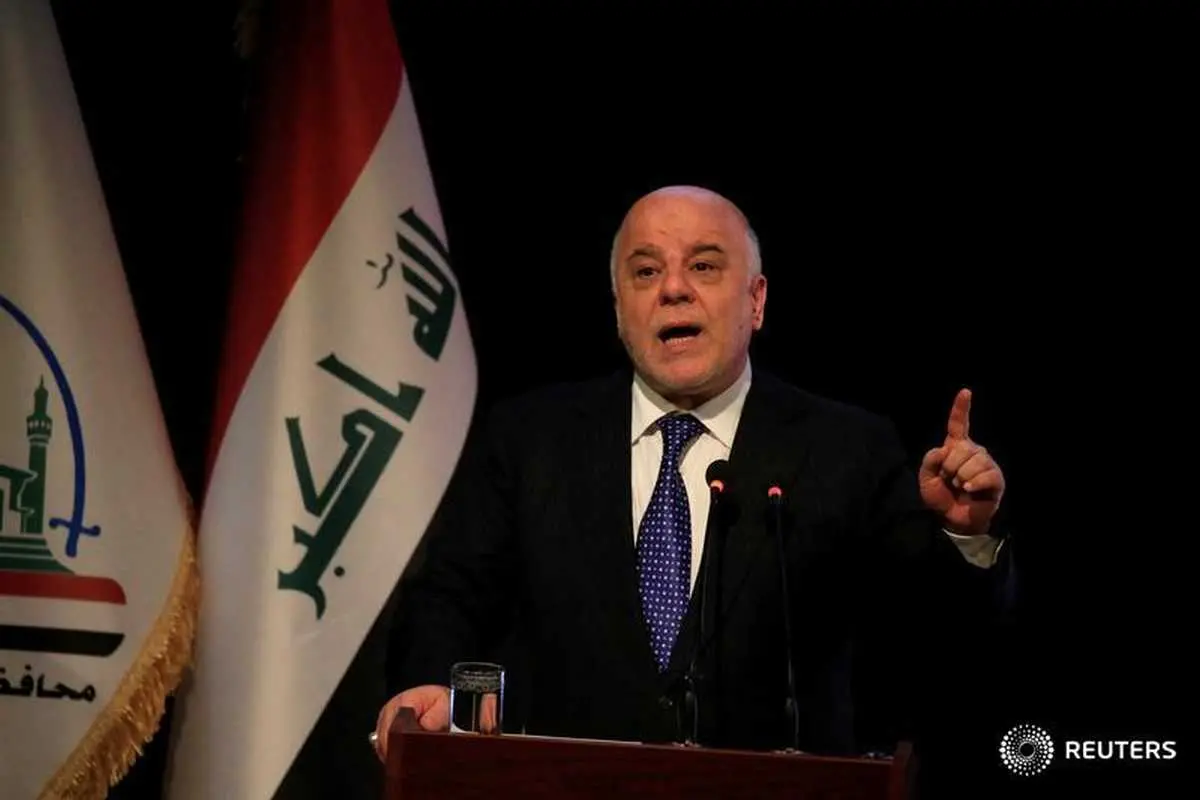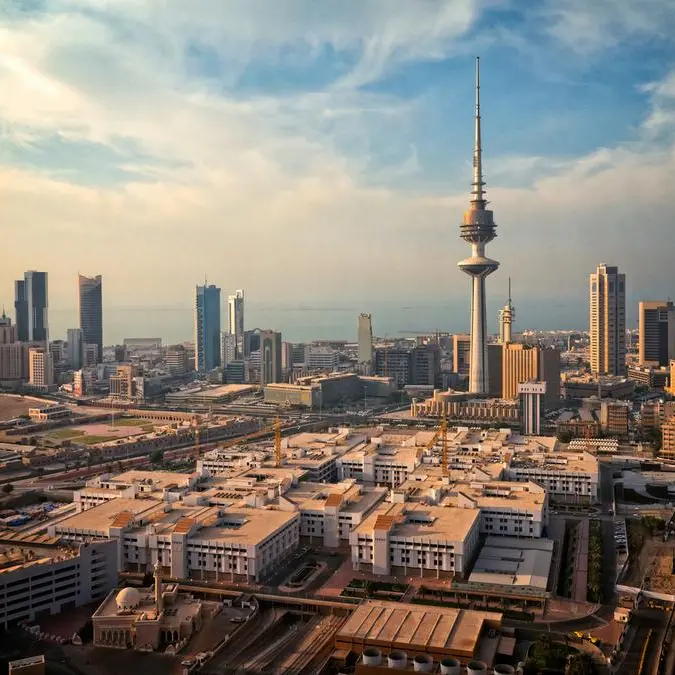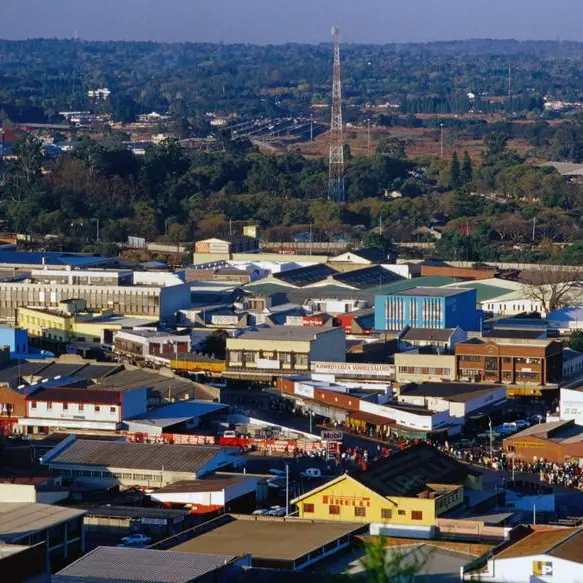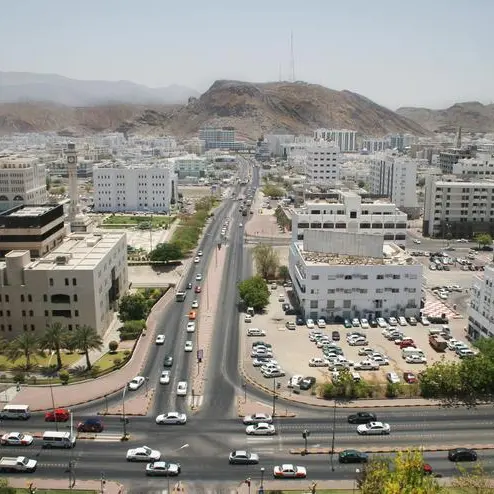PHOTO
Iraq has called on foreign investors to help rebuild its battered economy, saying it needs $100 billion to repair the impact of years of fighting against the Islamic State.
"It's a huge amount of money. We know we cannot provide it through our own budget," Prime Minister Haider Al Abadi told the World Economic Forum in Davos, Switzerland, on Thursday, according to a Reuters report.
"We know we cannot provide for it through donations, that's almost impossible. So that's why we (have) now resorted to investment and reconstruction through investment. This is a way forward and we can achieve it," he added.
The news from Davos comes ahead of two important dates for the Iraqi government: an international conference to raise funds in February and a general election set for May.
The conference to help raise funds will be held in Kuwait during 12-14 February, Al-Iqtisad News reported in December, citing quotes from Yara Salim, head of the World Bank Mission in Iraq.
The talks will focus on funding reconstruction projects in Iraq with the participation of the local, regional and global private sector, she said.
Earlier this month, the Iraqi parliament set May 12 as the date for new elections, where the winning party will take on the task of rebuilding the country’s economy and infrastructure after a three-year war with Islamic State, Reuters reported.
Details of the conference next month in Kuwait and the election in May come as it was revealed that Iraq has lost billions of dollars in recent years because of corruption and mismanagement of some key projects.
Thousands of projects have been stalled, shelved or found to have been executed in violation of contractual terms by unqualified contractors, the Arabic language daily Al-Mada reported in early January, quoting Thaer Al-Feeli, a presidential adviser for investment.
"The government is working on a plan to ensure better management of projects and avert problems that have stalled thousands of projects caused large losses," he was quoted as saying in the report.
He did not specify the value of the losses but the paper said they are estimated at more than $200 billion worth of delayed or stalled projects, and massive contractual abuses.
Further reading:
(Writing by Shane McGinley; Editing by Michael Fahy)
(shane.mcginley@thomsonreuters.com)
Our Standards: The Thomson Reuters Trust Principles
Disclaimer: This article is provided for informational purposes only. The content does not provide tax, legal or investment advice or opinion regarding the suitability, value or profitability of any particular security, portfolio or investment strategy. Read our full disclaimer policy here.
© ZAWYA 2018
"It's a huge amount of money. We know we cannot provide it through our own budget," Prime Minister Haider Al Abadi told the World Economic Forum in Davos, Switzerland, on Thursday, according to a Reuters report.
"We know we cannot provide for it through donations, that's almost impossible. So that's why we (have) now resorted to investment and reconstruction through investment. This is a way forward and we can achieve it," he added.
The news from Davos comes ahead of two important dates for the Iraqi government: an international conference to raise funds in February and a general election set for May.
The conference to help raise funds will be held in Kuwait during 12-14 February, Al-Iqtisad News reported in December, citing quotes from Yara Salim, head of the World Bank Mission in Iraq.
The talks will focus on funding reconstruction projects in Iraq with the participation of the local, regional and global private sector, she said.
Earlier this month, the Iraqi parliament set May 12 as the date for new elections, where the winning party will take on the task of rebuilding the country’s economy and infrastructure after a three-year war with Islamic State, Reuters reported.
Details of the conference next month in Kuwait and the election in May come as it was revealed that Iraq has lost billions of dollars in recent years because of corruption and mismanagement of some key projects.
Thousands of projects have been stalled, shelved or found to have been executed in violation of contractual terms by unqualified contractors, the Arabic language daily Al-Mada reported in early January, quoting Thaer Al-Feeli, a presidential adviser for investment.
"The government is working on a plan to ensure better management of projects and avert problems that have stalled thousands of projects caused large losses," he was quoted as saying in the report.
He did not specify the value of the losses but the paper said they are estimated at more than $200 billion worth of delayed or stalled projects, and massive contractual abuses.
Further reading:
- Iraq calls on investors to help 100bln reconstruction drive
- Iraq sets May 12 date for elections to be contested
- Iraq says 26 companies allowed to bid for oil, gas blocks in border areas
- Careem announces launch of operations in Iraq
(Writing by Shane McGinley; Editing by Michael Fahy)
(shane.mcginley@thomsonreuters.com)
Our Standards: The Thomson Reuters Trust Principles
Disclaimer: This article is provided for informational purposes only. The content does not provide tax, legal or investment advice or opinion regarding the suitability, value or profitability of any particular security, portfolio or investment strategy. Read our full disclaimer policy here.
© ZAWYA 2018





















